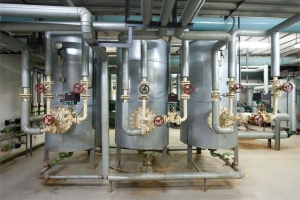Does Retro-Commissioning Help Satisfy LL97?
Posted on August 3rd, 2023
Does the retro-commissioning required under New York City’s Local Law 87 help achieve compliance with Local Law 97? The simple answer is, “It depends on your building’s status”. Read on to learn what that means for you.
Local Laws
Local Law 87 of 2009 requires owners of large buildings in New York City to perform energy audits and retro-commissionings for the sake of improving energy efficiency. Local Law 97 of 2019 requires large buildings meet an increasingly stringent set of greenhouse gas emissions limits which are calculated based on building energy consumption. While it seems only logical that retro-commissioning would help reduce energy consumption and thereby aid LL97 compliance, the real answer lies in the details.
Energy Audits & Retro-Commissioning
A detailed energy audit is a valuable tool to identify current energy usage as well as shortcomings in building systems and processes that waste energy. Similarly, the purpose of retro-commissioning is to get existing building systems back to their original state of efficiency. Energy auditing and retro-commissioning are the essence of LL87, but you might be surprised to know that those activities might actually increase energy consumption.
Consider an energy audit that uncovers some failed sensors and improperly operating controls. The retro-commissioning would then have those sensors and controls fixed to bring them up to their original performance. If the failed sensors caused hot water to be delivered 10 degrees lower than it should be, then fixing the sensors would likely increase energy consumption by increasing the water temperature. Likewise, if the malfunctioning controller caused reduced air changes or outdoor air intake, then correcting it could also increase energy consumption.
LL87 & LL97 Compliance
While energy audits and retro-commissioning should typically lead to some degree of overall reduction in energy consumption, LL87 essentially only calls for owners to perform no-cost and low-cost fixes. For buildings that already have good to very good ENERGY STAR scores (e.g. >70), compliance with LL87 should help building owners stay away from potential fines under LL97 for 2024-2029. Conversely, the low bar set under LL87 will not help owners of buildings with poor to very poor ENERGY STAR scores (e.g. <40) avoid LL97 fines.
Local Law 87 will likely become progressively irrelevant as the realities of LL97 become more apparent to building owners and as the allowable greenhouse gas emissions limits decrease in 2030 and beyond. For many building owners, compliance with LL97 will require much more than typical energy audits and retro-commissionings. Increasingly, even building owners with good ENERGY STAR scores will need creative solutions to change to energy sources with lower emissions, to greatly increase total building energy efficiency and to continuously optimize the efficiency of building systems, processes and usage.
What Does It All Mean?
Performing the typical energy audit and retro-commissioning specified by Local Law 87 of 2009 will likely do very little to help you comply with LL97 if your building is not already compliant. Achieving and maintaining compliance with LL97 can require energy source transitions, associated building system, HVAC, lighting and building management systems modifications which will generally not be revealed by typical LL87 energy audits. Relying on your LL87 energy auditor or your annual benchmarking professional to help you prepare for LL97, may not be the best strategy.
If your building needs significant modifications to meet LL97 emissions limits, you most likely need someone with in-depth energy engineering capability and construction experience as well as building automation systems installation and upgrade know-how. Trystate has the capability, experience and knowledge of LL97 to help you achieve compliance.
